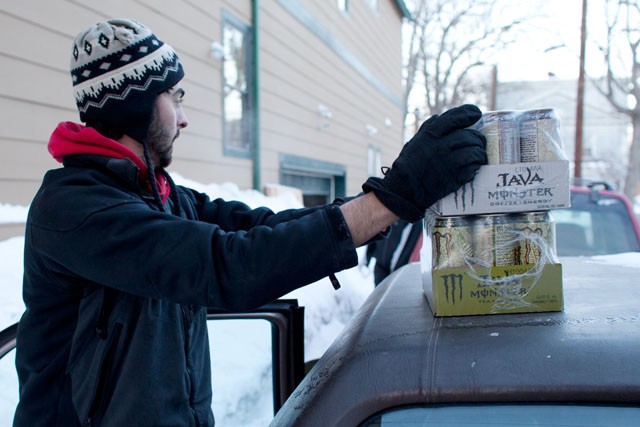Whether itâÄôs wearing a logo, listening to an iPod or simply recommending a new restaurant, people advertise their favorite brands every day. But some students have found a way to get paid for it.
As a University of Minnesota undergraduate, Thuy-Vy Bui spent three semesters as a Windows 7 and then Verizon Wireless brand ambassador. As a campus rep, she was required to go to events, do conference calls or contribute to viral marketing campaigns, all on her own schedule and between classes.
“ItâÄôs a unique experience and a good way to showcase your skills on your resume,” she said.
At the end of her employment, Bui got to keep the Droid phone and Lenovo laptops she used.
Windows 7, Verizon Wireless, Coke Zero and Sony have all used University students to campaign for their products on campus.
But some people have criticized the marketing practice for polluting a learning institution and paying students to voice an opinion that may not originally be their own.
“It does raise an ethical flag, but there are many things marketers do that raise flags,” University marketing instructor Kristina Durante said. “Peer influence exists whether marketers are capitalizing on it or not.”
Durante said her research has shown that peer influence can be one of the most effective marketing tactics, especially for young adults 18 to 27 years old.
“This is the time when your brain is unconsciously looking to your peers to make sure that you have a certain level of esteem,” Durante said. “It really comes back to finding the best mate. We look to our peer groups to let us know how attractive we need to be.”
University senior Shayla Henderson, who worked with Bui as a Verizon ambassador, said she didnâÄôt think the practice was unethical.
“ItâÄôs pretty normal, especially in a big city,” Henderson said.
“Students enjoy it and weâÄôre really friendly. WeâÄôre not pushing the products but having a good time.”
Henderson has worked with Twizzlers, Tron and Bacardi as a brand ambassador. While working with Verizon, she was flown to Chicago for an all-expenses-paid trip to promote the product.
“You meet a lot of people and do a lot of personal growth [as a brand ambassador],” Henderson said. “YouâÄôre forced to step out of your comfort zone and it opens your mind to the way society works.”
Henderson said the companies usually hire students who are heavily involved on campus and have a certain look and attitude. Brand ambassadors are typically paid between $10 and $25 an hour, depending on the level of responsibility, Henderson said.
Though not a brand ambassador himself, University junior Paolo Espanola said he has learned how to take advantage of the ambassador programs.
Holding a number of leadership positions on campus, including being the president of the Philippine Student Association, Espanola said heâÄôs found fundraising with brand ambassadors to be much more effective than cold calling companies for sponsorships.
“The days of bake sales are over,” he said. “ItâÄôs tough to do that so we try to get as much help as we can [through other means].”
While his partnerships with brand ambassadors havenâÄôt been as profitable as asking companies for big donations, Espanola said it can be much more convenient to work with his peers.
“We shy away from getting corporate sponsorship because itâÄôs kind of tough to do that,” Espanola. “But Verizon was able to help us out simply because we contacted the brand ambassador.”
Espanola said brand ambassadors are more able to vouch for the student groups with their superiors and leverage the relationship so that the partnership can be a mutually beneficial opportunity. The groups get their sponsorships, and the brand ambassadors are able to promote their products.
Nick DeLeo, a member of Omega Nu Alpha, has been able to work with Monster, an energy drink company, to make some extra cash.
Each month DeLeo picks up a free shipment of Monster for his fraternity in exchange for taking pictures of the fraternity members using the product. DeLeo then assembles a report with the pictures twice a month, personally receiving $100 for each report.
“It really helps us as a house,” DeLeo said. “It kind of brings people over. A lot of people, especially college students, like free stuff.”
DeLeo also said it can help the fraternity save money on drinks for events like Sweetheart Week.
In addition to the drinks, Monster will often give the fraternity free coolers, posters, T-shirts and even Monster condoms occasionally.
DeLeo said he believes this kind of relationship is fairly common among fraternities.
“Coke sponsors the campus and thatâÄôs kind of doing the same thing,” DeLeo said. “You see a lot of Coke stuff and thereâÄôs commercialism through that [too], but college, to me, is an atmosphere where you can choose what you want to do.
“WeâÄôre not going to push you and force you into drinking it,” he added. “We donâÄôt commercialize it that much. We do some, but I donâÄôt think to a very large extent.”


